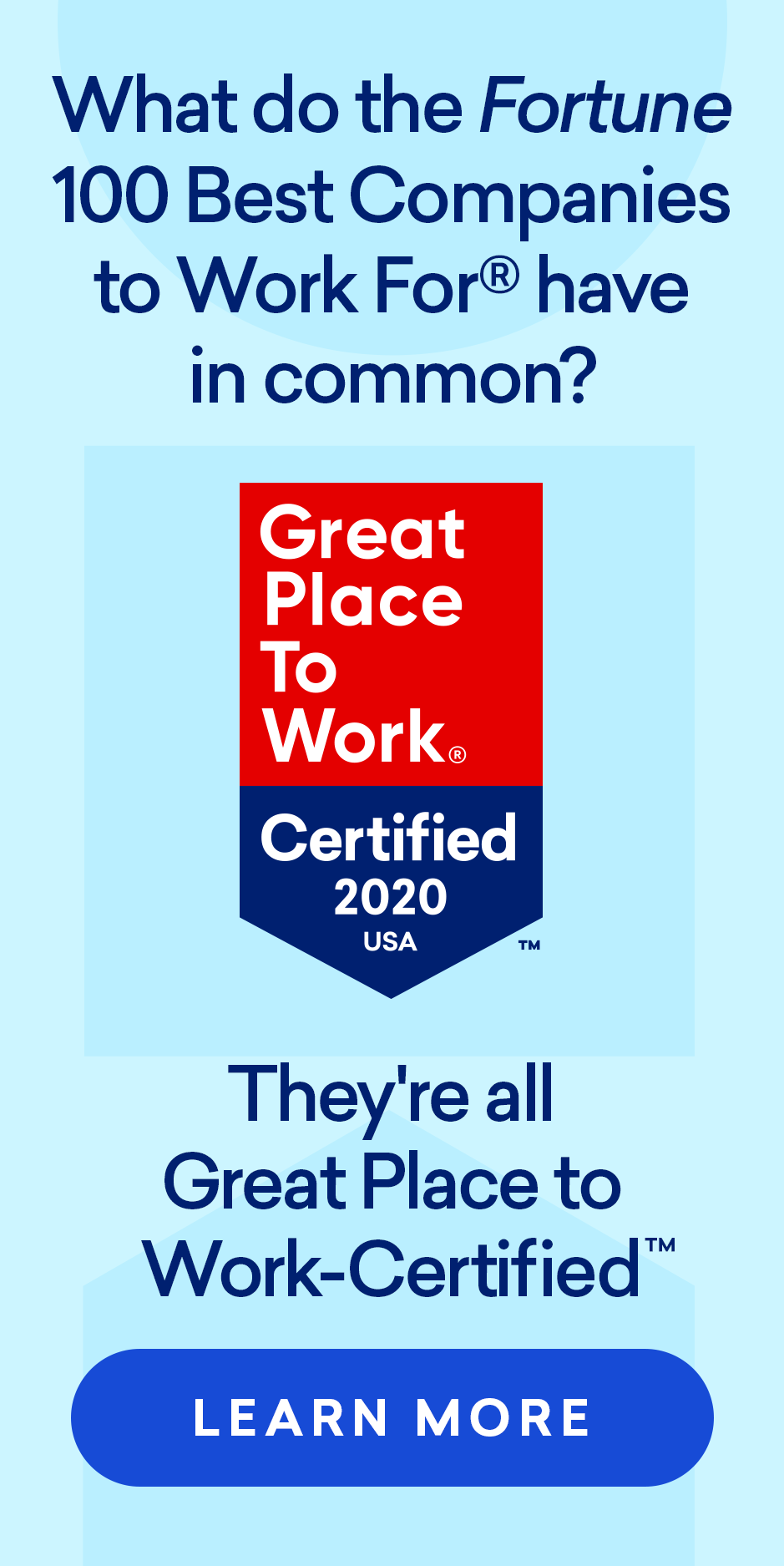A sense of belonging—even love—drives higher revenue, according to new Great Place to Work study
Soft is hard-edged when it comes to business growth.
That’s a key takeaway from new research from Great Place to Work, conducted while creating the 2016 Best Small and Medium Workplaces list. This research showed that one of the strongest drivers of better-than-average revenue growth among smaller businesses is a caring community at work.
Caring ranked as more pivotal for growth than the usual suspects such as a clear business strategy, innovation activities, and competent leadership. So the caring-as-competitive-edge finding is striking. But it is not entirely surprising to the two of us co-authors, given a growing collection of data about the importance of psychological security, community, and a sense of belonging.
Indeed, the signs point to a future where the firms best poised to lay waste to rivals are the ones that best cultivate brotherly and sisterly love within their walls.

Great Place to Work conducted this research by looking at several hundred small and medium-sized companies, and examining more than 52,000 employee surveys.
The study sought the strongest drivers of revenue outperformance by looking at the relative impact of the 58 questions from Great Place to Work’s Trust Index© Employee Survey.
At the very top was “Management hires people who fit in well here,” followed closely by “People care about each other here.”
When employees in a high-trust culture experience a caring workplace, they are 44% more likely to work for a company with above-average revenue growth. It’s notable that hiring-for-fit is a slightly stronger driver of better revenue. That’s a signal that newcomers—especially jerks—can upset a close-knit, high-performing team. Other top-10 drivers paint a picture of a caring, collegial environment. They include “There is a ‘family’ or ‘team’ feeling here” and “You can count on people to cooperate.”
One caveat about the study is that all the companies studied are Great Place to Work-Certified. That means 7 of 10 of each companies’ employees gave them positive scores on the Trust Index Survey, indicating that staffers at these firms have a solid level of trust in management, camaraderie among themselves, and pride on the job.
It may be that companies with low or broken trust with management would not see that a more caring environment would spur stronger sales growth.
But the connection Great Place to Work found between a caring community and competitive success dovetails with other research.
Google, in its pursuit to understand what fuels high performance in teams, recently learned that psychological safety is the primary influence. Psychological safety helps team members feel comfortable sharing opposing ideas or presenting new ones. Central to psychological safety is the willingness to be vulnerable in front of others.
Or consider earlier studies by Roy Baumeister of Florida State University on links between the need to belong—a close cousin of caring—and behaviors important to team effectiveness. Baumeister found that people rejected by others show counter-productive behaviors such as aggressiveness, reluctance to help, lack of empathy, self-defeating behavior and even “temporary reductions in intelligent thought.”
Co-author Shawn Murphy highlighted the role caring and belonging in his book, The Optimistic Workplace. In interviews conducted by Murphy for his book, employees in high-caring work environments experienced higher levels of pride towards the company and their work product. What’s more, caring and a sense of belonging can contribute to greater fulfillment in life.
In one case, a mechanic from Luck Companies expressed how his life changed because of the positive work environment at the provider of building materials including crushed stone. Kelly, the mechanic, said he felt “needed” at Luck Companies. “I know that what I do actually does make a difference and does matter,” he said. “When I see that I aspire to do better, do more.” The environment at Luck is shaped by the care the company demonstrates in living up to its motto of “igniting human potential.”
In another company, BambooHR, the expression of care comes through in the start-up’s “anti-workaholic policy.” While it sounds cheeky, the intention behind the policy is rooted in concern for employees. BambooHR wants employees to have a life outside the organization. Employees who consistently work more than 40 hours a week take time away from family and friends. The policy helps employees find a healthier way to integrate their personal and professional lives.
Caring and belonging are “soft,” intangibles. Yet their impact on a business is very tangible. Businesses willing to look beyond the traditional, supposedly “hard” levers of revenue growth are likely to outperform those stuck using yesterday’s business knowledge.
Today it’s never been clearer: caring is a competitive weapon.
Author Bios:
Ed Frauenheim is Director of Research and Content at Great Place to Work®. Ed provides insights into how Great Places to Work For All are better for business, better for people, and better for the world. He has spoken at more than 20 events, co-written two books and published articles in Fortune, Wired and the Seattle Times.
Shawn Murphy is author of The Optimistic Workplace and CEO of consulting firm Switch and Shift.
Learn how your company can become Great Place to Work-Certified and eligible for our Best Workplaces lists.














